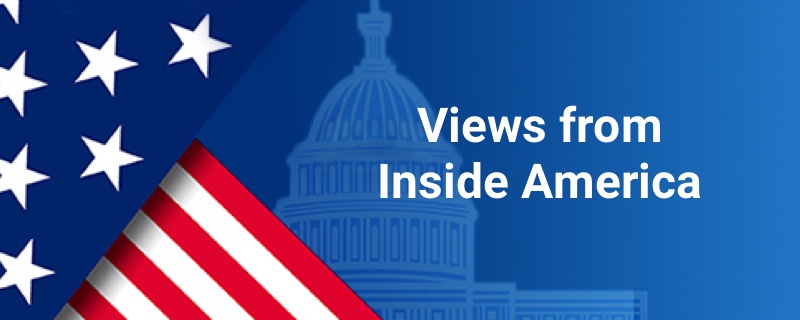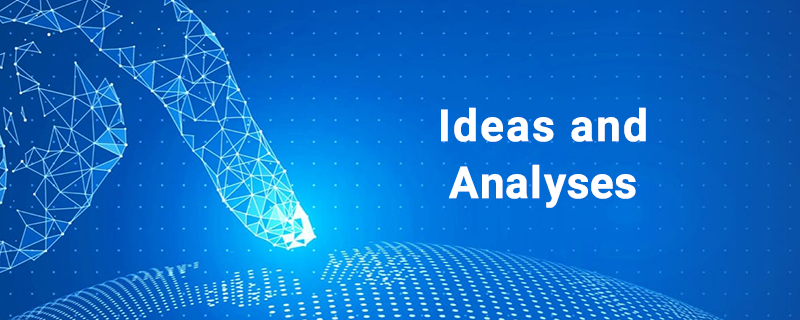Worldviews on the United States, Alliances, and International Order
About the Project
This project aims to sketch world's views on the alliance with the U.S. and its roles in shaping regional and global order, through a series of dialogues with experts on international relations and foreign policy from those American allied or partnered countries. The project outcome will be shared by publishing a series of working papers on the website as well as by an edited volume from a prestigious publisher.
Each project's participant is expected to discuss their designated country's grand strategy and the role of alliance, or partnership with the U.S.; its perception and way of management with the U.S.; its vision on sub-regional, regional and global order and the relationship between such vision and the relationship with the U.S.
Since no two American allies have either a similar strategic environment or a same way of alliance management with Washington, it is critical to develop a framework to discuss and contrast various perspectives among American partners, but the process of this project and the publications should merit their own debates on future vision on alliance and order. The project would also contribute for the American audience to deepen their understanding on allies and partners, and to help review their coalition-building strategy.
Background and Awareness of Issues
Facing increasing difficulties and challenges of security environment in East Asia, such as China's reinforcement of military capabilities and North Korea's development of nuclear warheads and missiles, Japan-U.S. Alliance has been strengthened recent years. Among other U.S. Allies and partners, Japan has remained a strong believer of the alliance with the U.S. However, it is doubtful that all American allies and partners share same views, having their own historical context with the U.S. and own ideas on order and principles.
The discourses over American commitment to sustain regional security as well as liberal international order have been discussed in Europe and Asia especially after the election of Mr. Donald Trump as the 45th President of the U.S. Hence, they could differ in losing the confidence on the durability of American leadership in the world due to the historical relationship with the U.S., their regional context, and vision of global order. It is not clear how American allies behave and whether they can work together to sustain the order.
An international order can be shaped by many factors. Hegemon's own reluctance for ruling is surely significant. So is other great power's revisionism, making use of such strategic opportunities. However, American allies have the potential to shape the fate of the order: if they succeed in acting collectively, it shall underpin the global governance for a while, and ensue the order transformation process in rather slow and peaceful pace. If they fail, it shall not only accelerate the U.S. retrenchment, but invite an emergence of divisive and competitive order.
Looking at our future relationship, policy and strategies toward the United States in regional and international order from mid-to-long term perspective, it is now more critical to understand about the perception and the way of management of other "recipients" of U.S.-based international order, who are U.S. Allies and partners.
Core Project Member
Project Leader
Dr. Ryo Sahashi
Associate Professor,
The University of Tokyo
Senior Mentor
Dr. Evelyn Goh
Professor, Australia National University
Workshop Participants
- (■) are the participants of the pilot workshop.
- (■) are the participants of the 1st workshop.
- (■) are the participants of the 2nd workshop.
- (■) are the participants of the 3rd workshop.
※The list includes participants of two workshops; pilot workshop in March 2017 and the 1st workshop in February 2018.
Asia-Pacific
Deputy Director-General (Assistant Director), Foreign Service Institute
Dr. Daniel CHUA ■
Assistant Professor, Military Studies Programme, S. Rajaratnam School of International Studies, Nanyang Technological University (NTU)
Dr. Iain HENRY ■■■■
Lecturer, Strategic and Defence Studies Centre, Australian National University
Mr. LE Hong Hiep ■■
Fellow, ISEAS-Yusof Ishak Institute
Dr. Ji-Young LEE ■■■■
Assistant Professor of International Relations, School of International Service, American University
Dr. Dajung LI ■
Associate Professor and Director, Graduate Institute of International Affairs and Strategic Studies (GIIASS), Tamkang University
Dr. Rohan MUKHERJEE ■■■
Assistant Professor of Political Science, Yale-NUS College
Dr. Fumiaki NOZOE ■■
Associate Professor, Department of Regional Administration, College of Law, Okinawa International University
Dr. M.L. Pinitbhand PARIBATRA ■
Assistant Professor of International Relations, Faculty of Political Science, Thammasat University
Senior Analyst, Indonesia Programme, Institute Defence and Strategic Studies, S. Rajaratnam School of International Studies, Nanyang Technological University
Dr. Nobuhiko TAMAKI ■■■
Project Researcher, Policy Alternatives Research Institute, University of Tokyo
Dr. Michito TSURUOKA ■■
Associate Professor, Faculty of Policy Management, Keio University
Europe
Dr. Didem BUHARI-GULMEZ ■■■
Associate Professor, Department of International Relations, Izmir University of Economics
Dr. Laura CONSIDINE ■
Lecturer in International Relations, University of Leeds
Dr. Niklas HELWIG ■■■
Transatlantic Postdoctoral Fellow in International Relations and Security (TAPIR fellow), RAND Corporation
Dr. Alexander LANOSZKA■■■■
Lecturer, Department of International Politics, City, University of London
Dr. Luis SIMON ■
Research Professor, the Institute for European Studies
Papers written by Project Members
Published papers written by project participants, based on the discussions at the project workshops through 2017-2019.
Contemporary Politics Special Issue Volume 26, 2020.
"World Views on the United States, Alliances, and the Changing International Order"
Seven papers written by project members were published by Contemporary Politics (Taylor & Francis) as an special issue (Vol.26, Issue 4, 2020).
Featured News
2020.10.14

Adapt or atrophy? The Australia-U.S. Alliance in an age of power transition
Featured News
2020.10.14

Chaos as opportunity: the United States and world order in India’s grand strategy
Featured News
2020.10.14

Out of order? The US alliance in Germany’s foreign and security policy
Featured News
2020.10.14


